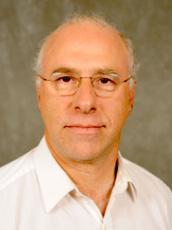Building Labor Market Skills Among Disadvantaged Americans
Harry Holzer, Georgetown University
Harry Holzer is a professor of public policy at the McCourt School of Public Policy at Georgetown University. Over most of his career, Professor Holzer’s research has focused primarily on the low-wage labor market, and particularly the problems of minority workers in urban areas. In recent years he has worked on the quality of jobs as well as workers in the labor market, and how job quality affects the employment prospects of the disadvantaged as well as worker inequality and insecurity more broadly. He has also written extensively about the employment problems of disadvantaged men, advancement prospects for the working poor, and workforce policy more broadly.
He is currently an Institute Fellow at the American Institutes for Research, a Senior Affiliate at the Urban Institute, a Senior Affiliate of the National Poverty Center at the University of Michigan, a National Fellow of the Program on Inequality and Social Policy at Harvard University, a Nonresident Senior Fellow at the Brookings Institution, and a Research Affiliate of the Institute for Research on Poverty at the University of Wisconsin at Madison. He has also been a faculty director of the Georgetown Center on Poverty, Inequality and Public Policy. He received his BA (1978) and Ph.D. (1983) from Harvard University.
Prior to going to Georgetown, Professor Holzer served as Chief Economist for the U.S. Department of Labor and professor of economics at Michigan State University. He has also been a Visiting Scholar at the Russell Sage Foundation in 1995, and a Faculty Research Fellow of the National Bureau of Economic Research.
His research on urban poverty and social policy has been funded by grants from the Gates Foundation, Smith Richardson Foundation, Joyce Foundation, the U.S. Department of Health and Human Services, the Rockefeller and Ford Foundations, the Russell Sage Foundation, the Institute for Research on Poverty, the Upjohn Institute, the U.S. Department of Labor, the National Science Foundation, Ford Foundation, Mott Foundation, the MacArthur foundation and the Public Policy Institute of California.









